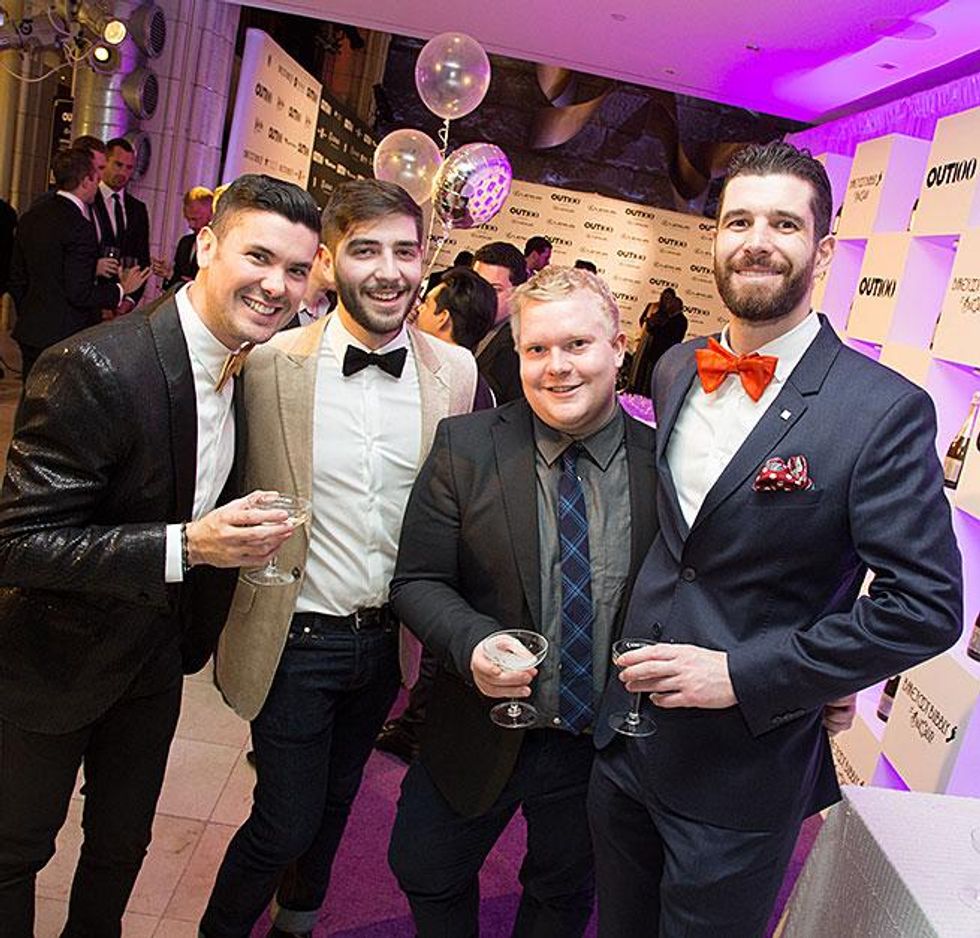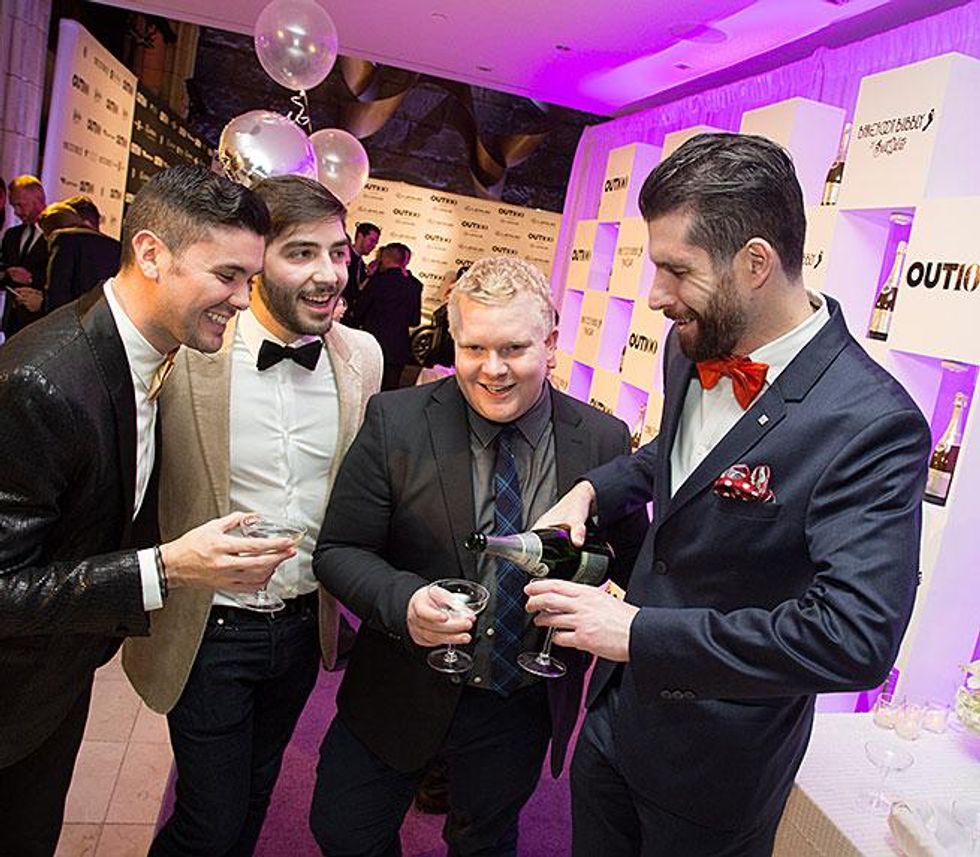
Photography by Ryan Pfluger at Tribeca Journal Studio, New York, on October 5, 2015. Styling by Michael Cook. Hair: Rheanne White. Makeup: Kim Bower. Dress by Michael Kors.
These days, Carrie Brownstein is best known as the star and co-creator of Portlandia, her offbeat IFC sketch comedy series with Fred Armisen. But her 2015 memoir, Hunger Makes Me a Modern Girl, is about the other Carrie Brownstein, the one who's been a singer and guitarist in the acclaimed indie punk-rock trio Sleater-Kinney for two decades.
The tale of a young suburban outsider who broke into the rarefied riot grrrl scene in the mid-'90s only to completely redefine it, Hunger details the highs and lows of life on the road, and on the fringes. Brownstein brings the same self-awareness, self-deprecating humor, and relatability to her storytelling that has made her performances on Portlandia so endearing. She is the decidedly uncool cool rock star, the kind who suffers from shingles while on tour; the kind who, while leaving Marc Jacobs's Paris apartment after shooting a Sonic Youth video with Kim Gordon, steps in dog shit.
"There's always been a strain of humility in my work, a relationship to what is awkward and the ways I feel like I don't belong," says Brownstein, who recently reunited with Sleater-Kinney after a 10-year hiatus to release the band's latest album, No Cities to Love. "I don't value a way of living that protects me from grit and dirtiness and messiness."
If anything, life's messiness seems to have emboldened her. In the book, Brownstein recounts her rough patches with clarity and an unshowy eloquence. Passages about her mother's eating disorder, the Spin interview in which she was outed at the start of her career, and her father's own coming out afterward are especially moving.
Yet the memoir is more than a personal portrait or a lover letter to the music that saved her. It is ultimately a manifesto for the modern artist. The hunger of its title connotes the endless, insatiable quest for the next big idea or breakthrough, the perpetual discomfort that should reside in any creative spirit, the doing away with entitlement or complacency despite the fame and accolades that come with success. As Brownstein writes, "The stakes should always feel high."
Which is why she continues to challenge herself, this year branching out into dramatic roles and exploring the visions of her trailblazing peers. Brownstein makes a brief cameo in director Todd Haynes's lesbian romance and Cannes hit, Carol, and she'll also reprise her role as the queer character Syd in the upcoming second season of Jill Soloway's Emmy-winning Transparent.
"I can't really imagine settling into the status quo," she says. And that outlook extends to her politics, whether it's her views on sexism, racism, or transphobia. "With each victory, there still has to be an assessment of what is yet to be fought for, still a sense of inequality or injustice," Brownstein says. "I think empathy is the quickest path to defiance."




























































